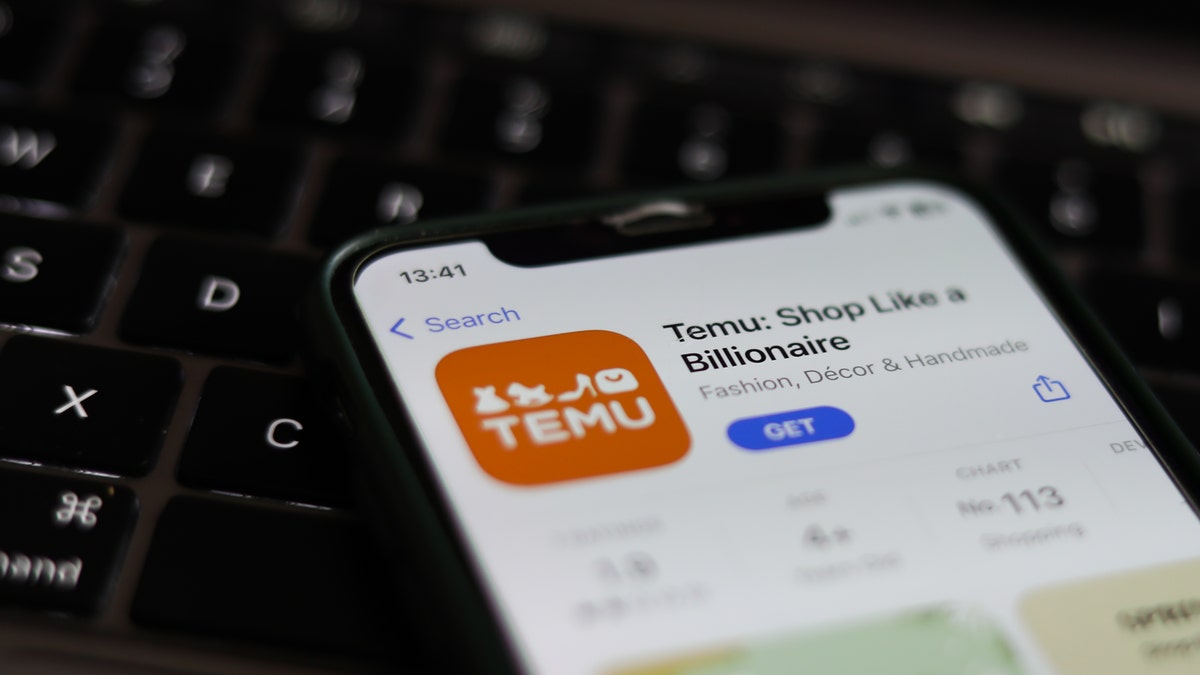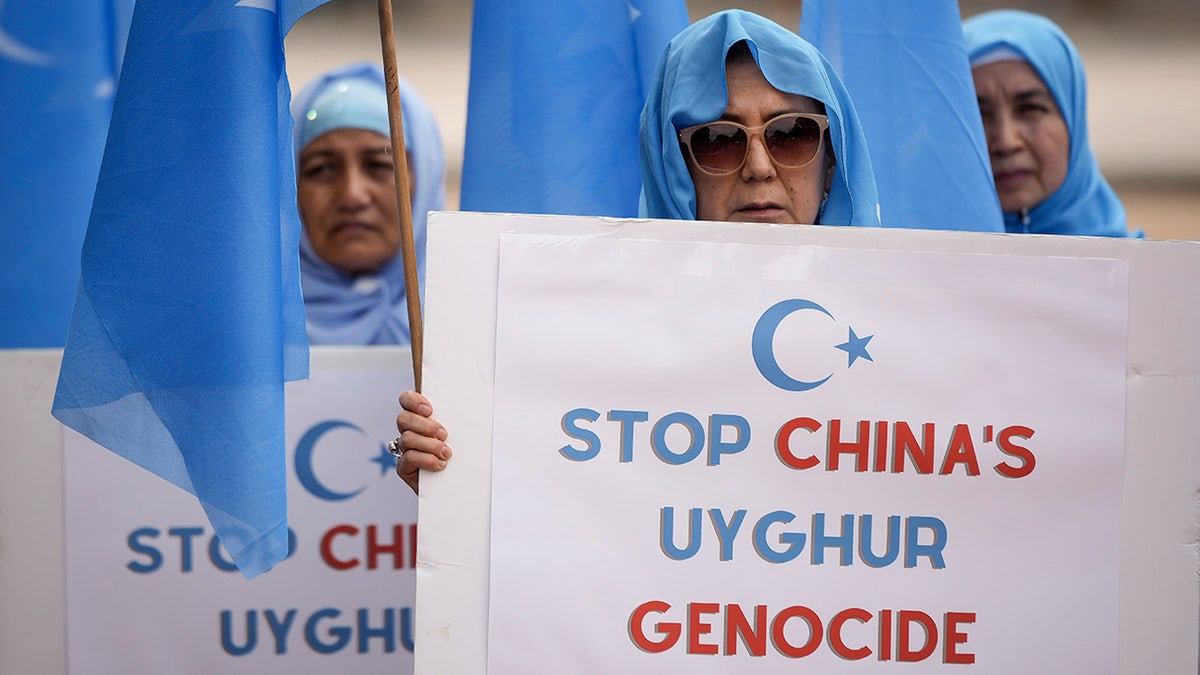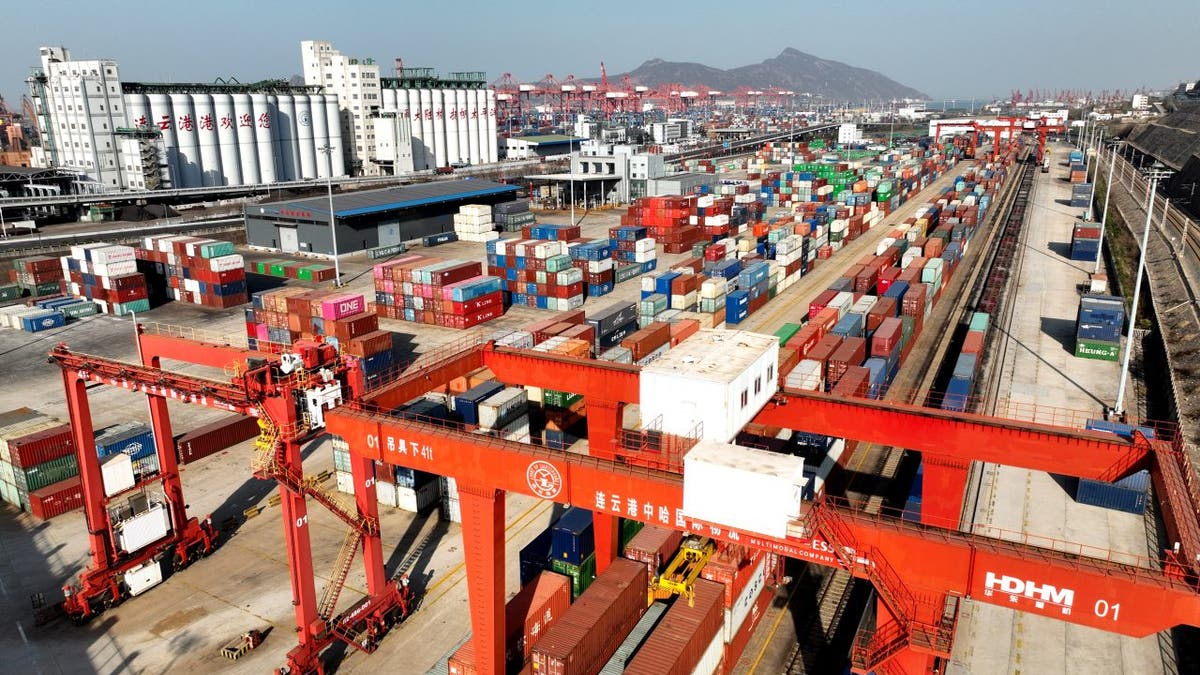House makes bipartisan effort to expose 'horrors' committed against Uyghurs
Reps. Mike Gallagher and Raja Krishnamoorthi explain the threat from China amid growing concerns about TikTok and the country's relationship with Russia.
Tech firm Ultra has developed an artificial intelligence-powered tool it believes has helped analysts identify products coming from China through the platform Temu that were created using forced labor, possibly from the Uyghur population.
"We're looking at Temu from the perspective of the Forced Labor Prevention Act," Ultra founder and CEO Ram Ben Tzion told Fox News Digital. "How many things that we don't want are coming into the country using this method, right? The good cases are counterfeit. The worst cases are poor quality.
"I'm quite confident that illicit elements can find themselves going through this platform into the market, so it's time to demand accountability," he added. Ben Tzion’s company created the program Publican, which pulls in huge amounts of shipping data to analyze and look for patterns and red flags for any products with potential fraud issues.
Ultra found that the products on Temu would lead to non-indicative names and untraceable company information. But when compared to the same product on sister platform Pinduoduo in China, the company was able to see the products came from companies in Xinjiang, just eight miles away from known Ughyur detention centers or "cultural centers," as they are euphemistically called.
HOUSE DEMANDS PENTAGON ISSUE AI UPDATE AS THREATS FROM CHINA, OTHER ADVERSARIES PILE UP

A laptop keyboard and Temu icon in the App Store is displayed on a phone screen in an illustration photo from Krakow, Poland, March 27, 2023. (Jakub Porzycki/NurPhoto via Getty Images)
Pinduoduo also allegedly bypasses users’ cellphone security to monitor activities on other apps, check notifications, read private messages and change settings.
"We have here a variety of products to show that this is not a one-off," Ben Tzion said. "My conclusion is that these products are possibly or very likely associated with or linked to shops either from Xinjiang or manufactured in Xinjian, and that in itself is a violation of trade policies."
Ben Tzion theorized that Temu could be an effort to bypass the Uyghur Forced Labor Prevention Act (UFLPA), which establishes standards to refuse shipments of goods produced or manufactured wholly or in part in the Xinjiang Uyghur Autonomous Region in China.
TECH CEO SAYS THERE WILL SOON BE AN ‘EXPLOSION’ IN AI-ASSISTED HUMAN CREATIVITY
Temu launched in 2022, developed by China-based PDD Holdings Inc. The app already has over 50 million downloads, with 16 million alone in 2022, making it the second-most used digital marketplace in the U.S. after Amazon. Temu sells clothing, groceries and pretty much any other product you can imagine for extremely low prices, such as $17 wireless earbuds, $1 "gold" necklaces and $23 wedding dresses.
The AI, developed and utilized in conjunction with the data analysis, allows Publican to examine immense data sets at incredible speeds to flag products with questionable pricing, quality or authenticity.

Supporters of the East Turkistan National Awakening Movement rally in front of the White House to commemorate the 13th anniversary of the July 5 Urumqi Massacre July 5, 2022, in Washington, D.C. (Drew Angerer/Getty Images)
"For the data aggregation, it is for partnering patterns, and we do use machine learning and automated inspection capabilities based on third-party models in the analysis of results," Ben Tzion said. "We automatically obtain information from thousands of publicly available digital sources and analyze it, and that allows us to determine the nature of every company and every product and to flag more than 160 different fraud patterns."
Ultra was founded in 2016 but only started developing Publican in 2019. The company finally released it in 2021 and started operating in the Middle East, Asia, Latin America, Europe and Africa, where it was able to flag products that displayed "fraud patterns."
APP CEO OFFERS ‘CORE QUESTION’ PEOPLE MUST ASK WHEN IT COMES TO EMERGING TECHNOLOGIES
Ben Tzion identified Temu as a potential source of fraud after seeing the prices for products, which he claimed just "don’t make sense."
"I believe that if something is either too good to be true or too cheap to be available, there is a reason behind it," Ben Tzion explained. "I wanted to see if we would be able to utilize our technology to understand what's happening here, and what was very visible at the get-go is this is something that was designed to hide the identity of products.
"The bigger picture here, the bigger story here is … the fact that Temu is, by design, exploiting and undermining the U.S. trade policies and economy," he stressed, saying there is no mistake that "this is by design."

Large machinery loads containers at the China-Kazakhstan logistics Cooperation Base in Lianyungang, East China's Jiangsu province, March 14, 2023. (CFOTO/Future Publishing via Getty Images)
"It is always cheap," he added. "Under de minimis, there are no duties or tax associates, therefore no inspection. Even using the international postage system is exploiting the U.S. economy … by design keeping products under tax and regulation thresholds."
CLICK HERE TO GET THE FOX NEWS APP
Shipments under $800 would escape inspection, potentially allowing Chinese companies making direct-to-consumer sales to bypass the UFLPA. This loophole, known as de minimis, prompted lawmakers on the Congressional-Executive Commission on China to look into ways to crack down on such shipments, though no such solution has yet arisen.
"This is why we have taken upon this task to bring it to the attention of both consumers and regulators that it's not coincidence. It's a strategy," Ben Tzion said.
Temu did not respond to a Fox News Digital request for comment by time of publication.
Fox News’ Kurt Knutsson and FOX Business’ Eric Revell contributed to this report.








































